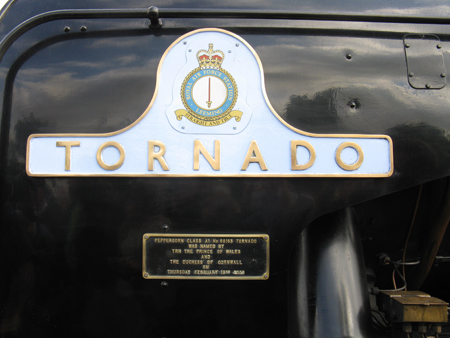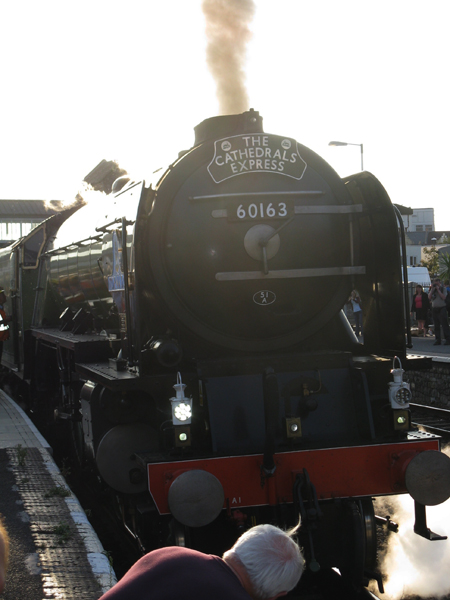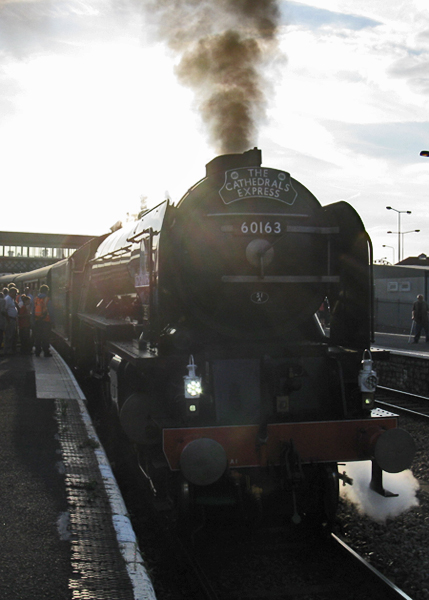London to Exeter Steam Excursion
September 13, 2009
by Peter Limper
| On September 13, 2009, I rode behind Pacific 60163 as it pulled the
Cathedrals Express on a round trip from London to Exeter in the UK. (Ed. Note: Our contributor is the fellow in the blue shirt.) |
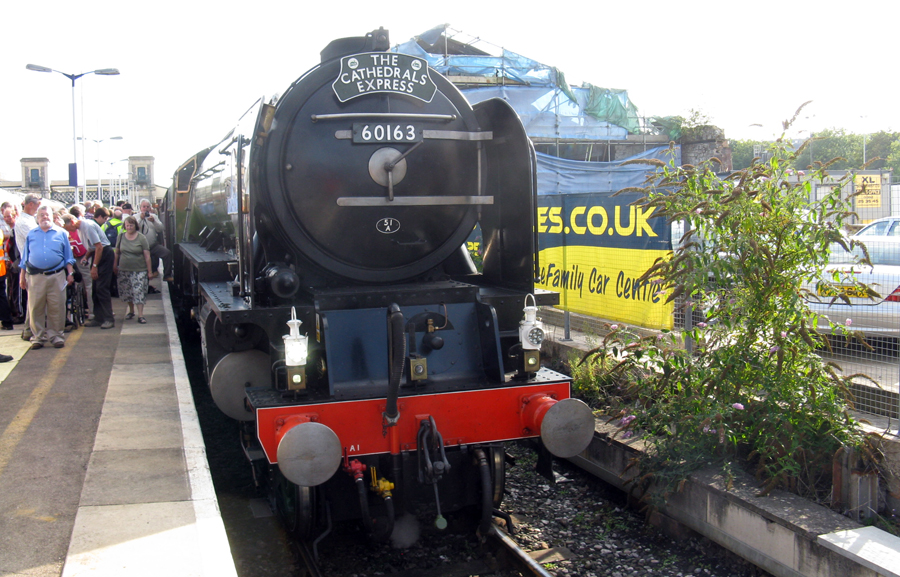 |
| The first new mainline steam locomotive built in Britain since 1960, 60163
Tornado entered service in 2009. The engine is based on the A-1 class Pacifics built by British Railways in 1948 and 1949. (See Trains Magazine, February 2009, for details.) |
||
|
The train loads at Waterloo Station in London (first class carriage shown).
|
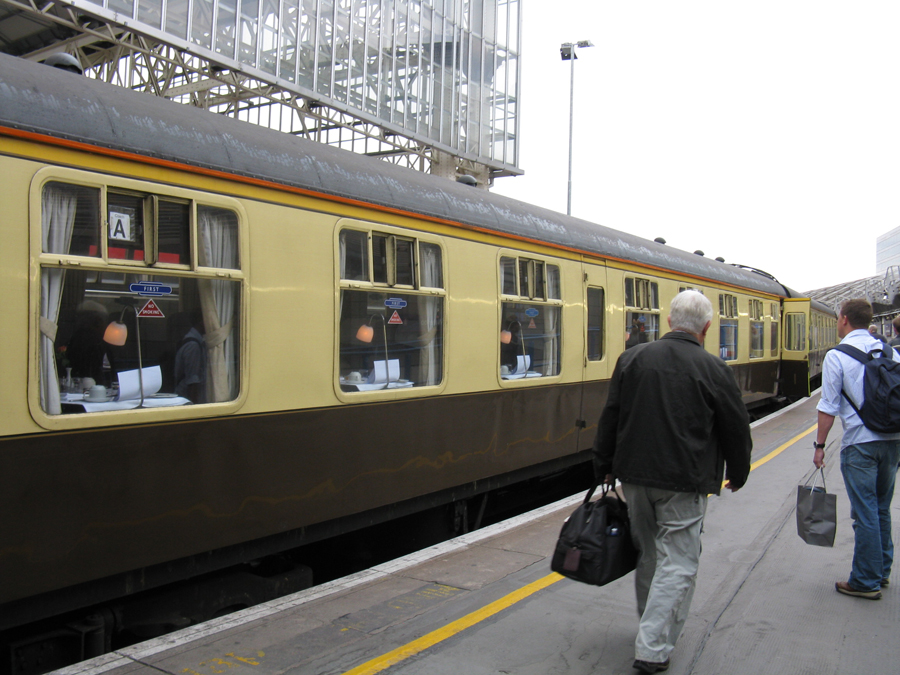 |
Passengers are given detailed timing sheets for the trip, and the train
generally keeps time to the minute on a line with heavy scheduled
passenger traffic. Although the sheet indicates that 60163 is limited to
75 mph on this trip, I was reliably informed by staff members that we
reached 78 mph at some points the fastest I have ever ridden behind
steam! |
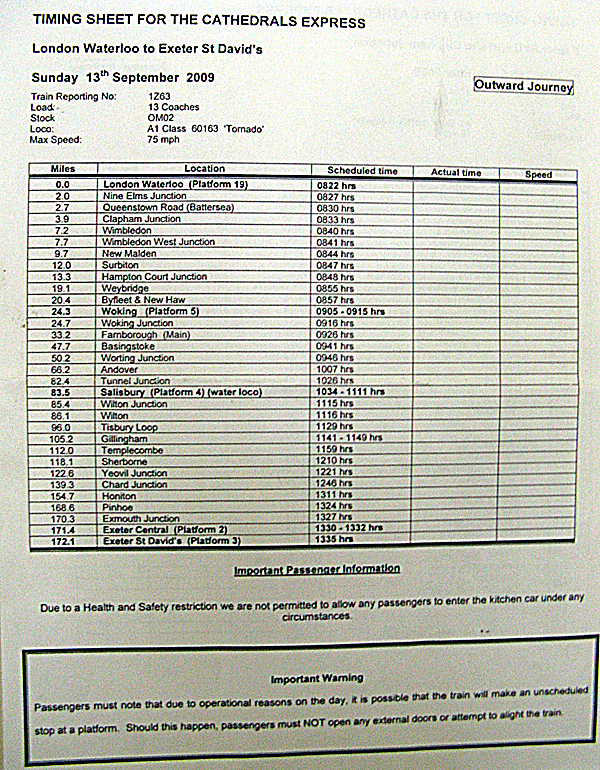 |
The train pauses for a red signal shortly after leaving London, and later
passes a group of onlookers at a small station. |
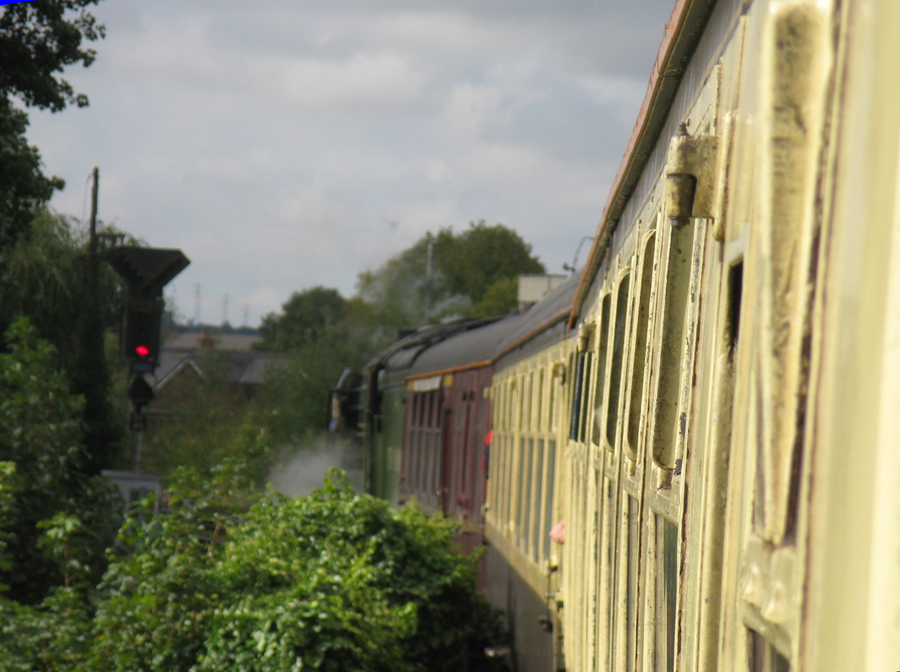 |
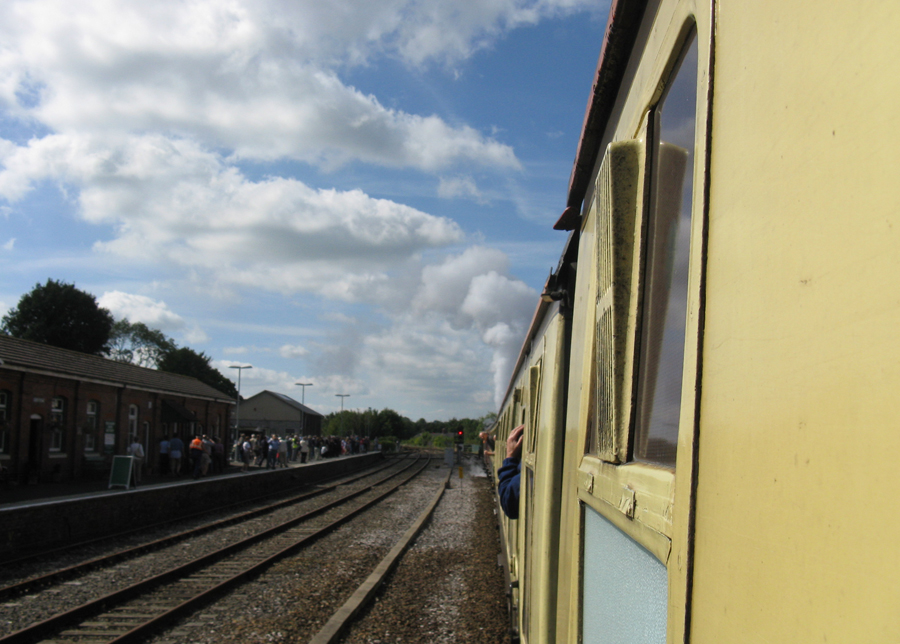 |
As on American steam trips, the local fire department (here at Salisbury)
often waters the engine. Tornado has special tender fittings to connect
to fire hoses. |
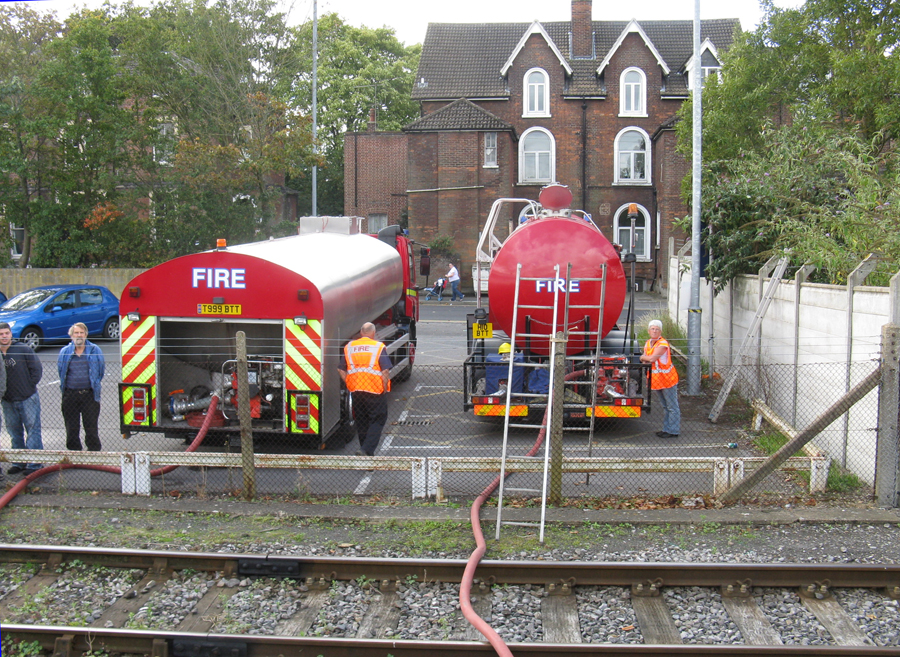 |
Also as in common American practice, 60163 was accompanied by a crew/
service car from which souvenir vendors operated throughout the train. |
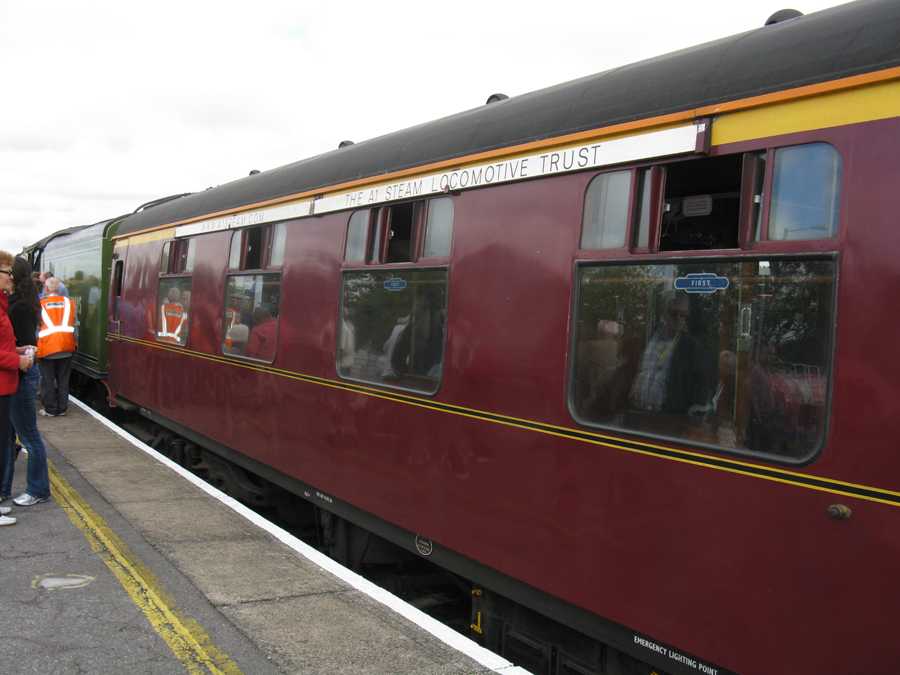 |
There are no photo runbys on British mainline steam trips. High-level
platforms, limited access at stops, and onlooker crowding made it
difficult to get traditional ¾ shots. |
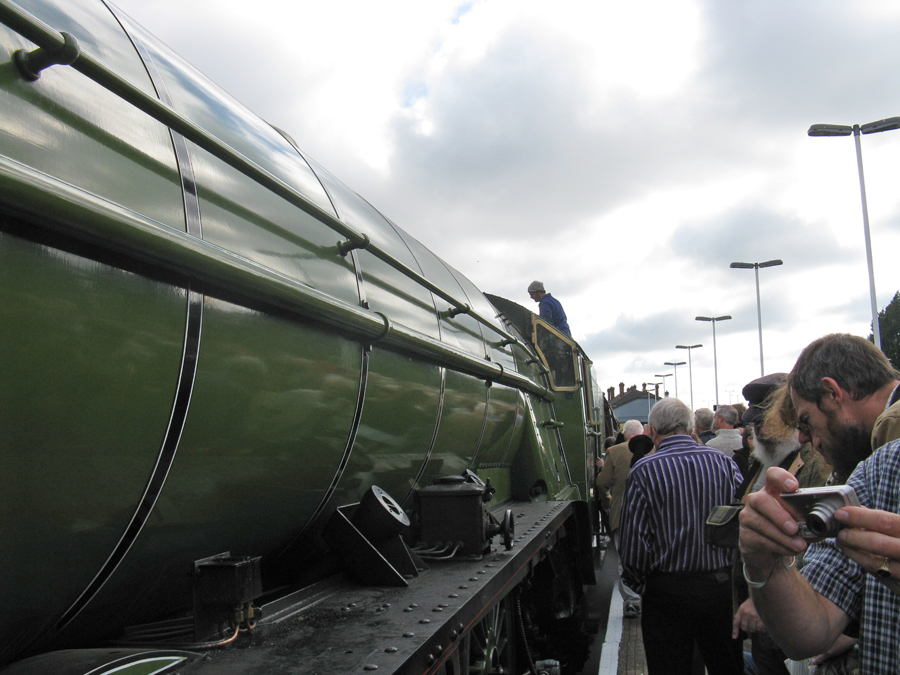 |
At Exeter I managed to get some clear shots of the locomotive.
|
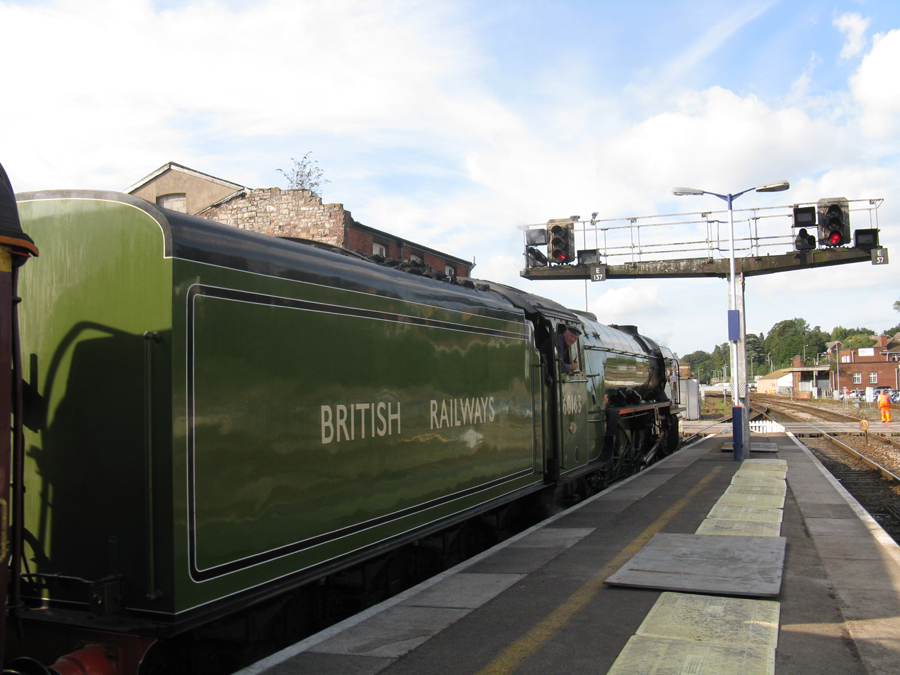 |
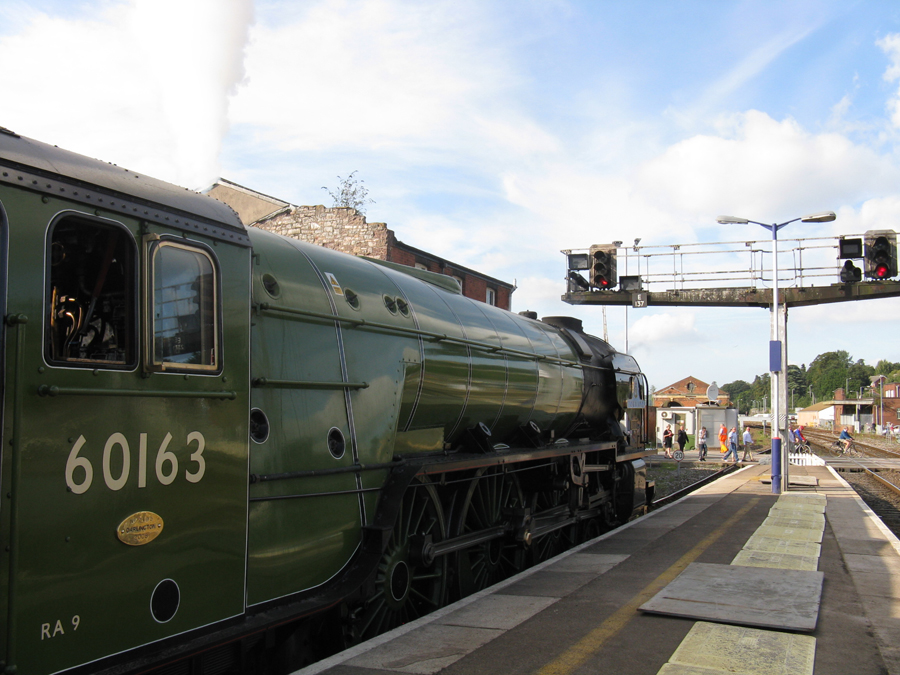 |
The cab controls seem rather simple compared with modern American
steamers, but the locomotive is equipped with the latest electronic
devices for main-line running. |
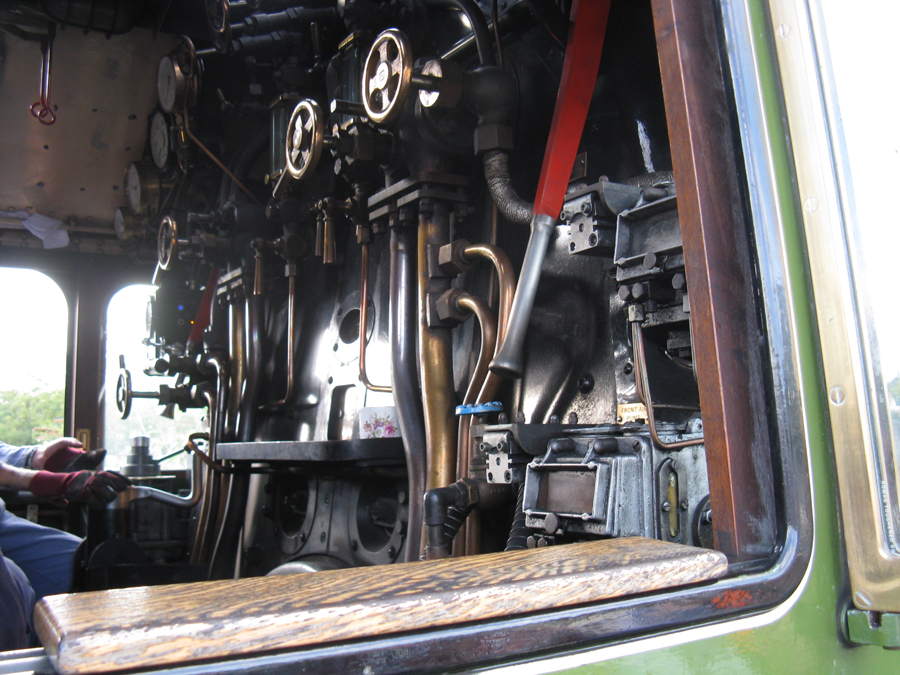 |
There was a three hour lay-over in Exeter, during which I toured the
medieval cathedral. (All the Cathedrals Express steam trains run to one
of Englands cathedral towns.) |
 |
| I returned to the station for some train-watching before the return trip departed. Although Exeter has a population of only about 111,000, the station (one of two!) has six tracks and frequent arrivals and departures. |
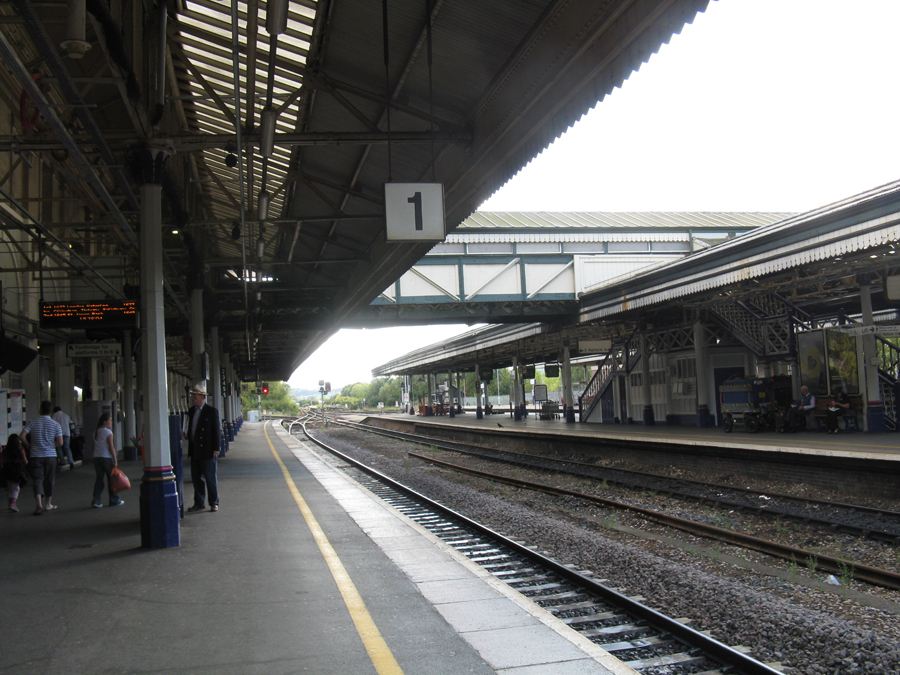 |
A typical crowd waits to board a London-bound train. |
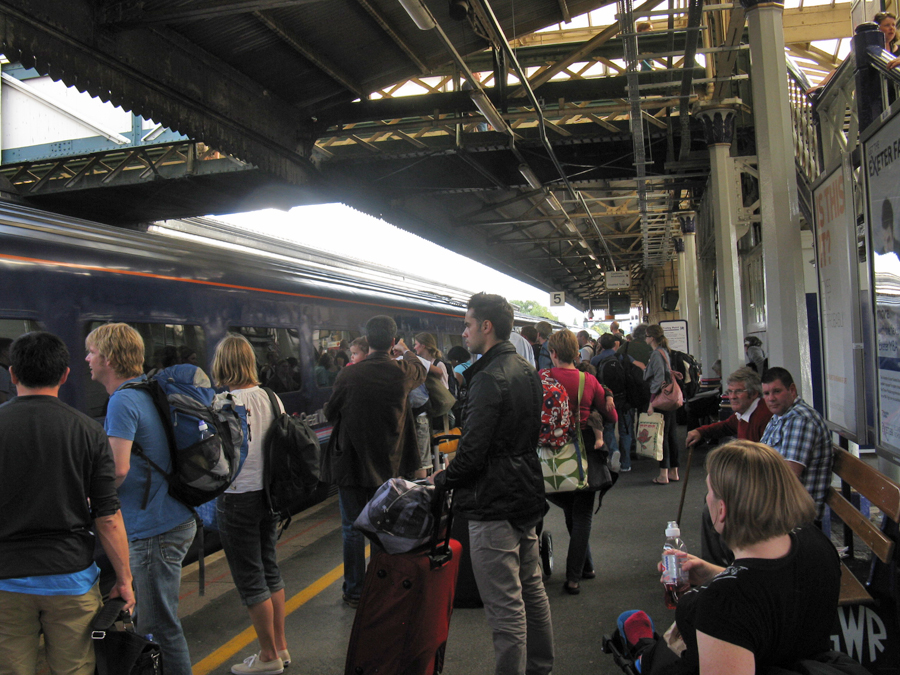 |
The Cathedrals Express backs in to Exeter station for the return trip. |
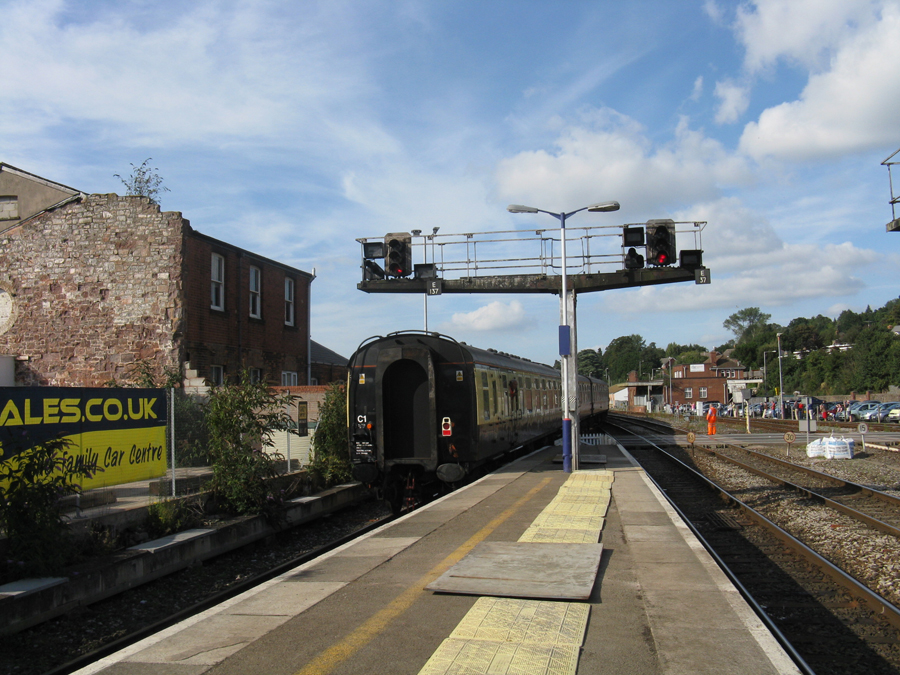 |
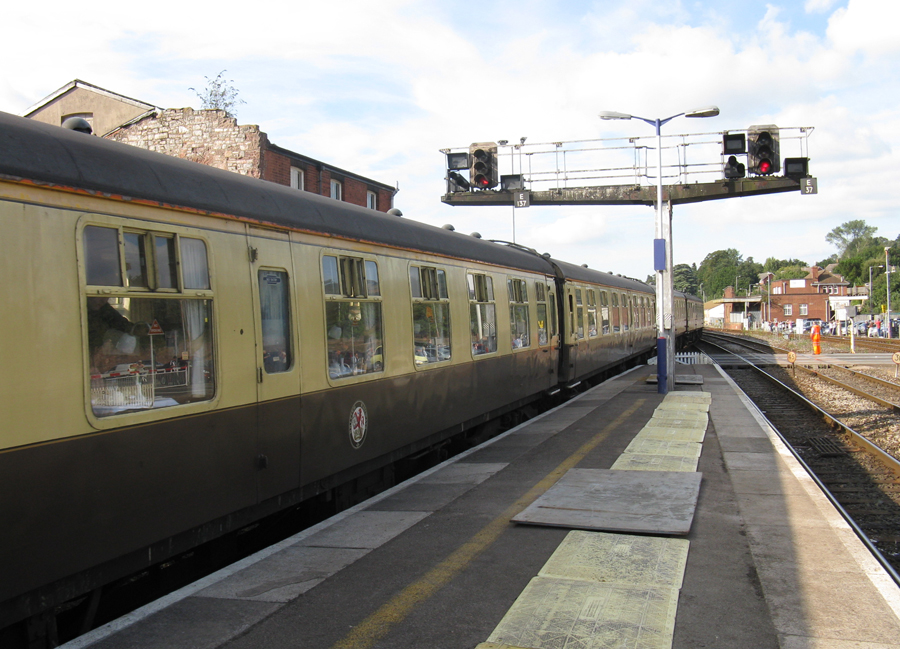 |
I rode in this 3rd class coach, in a seat next to the window lettered
F. Small openings above the main windows let in some of the engine
sounds and even allow for limited photography, but as in American cars the
best views are from the open windows in the entry doors. The grim-looking
guy appointed himself owner of the door where he is standing, and rarely
yielded his place on the entire trip back to London. |
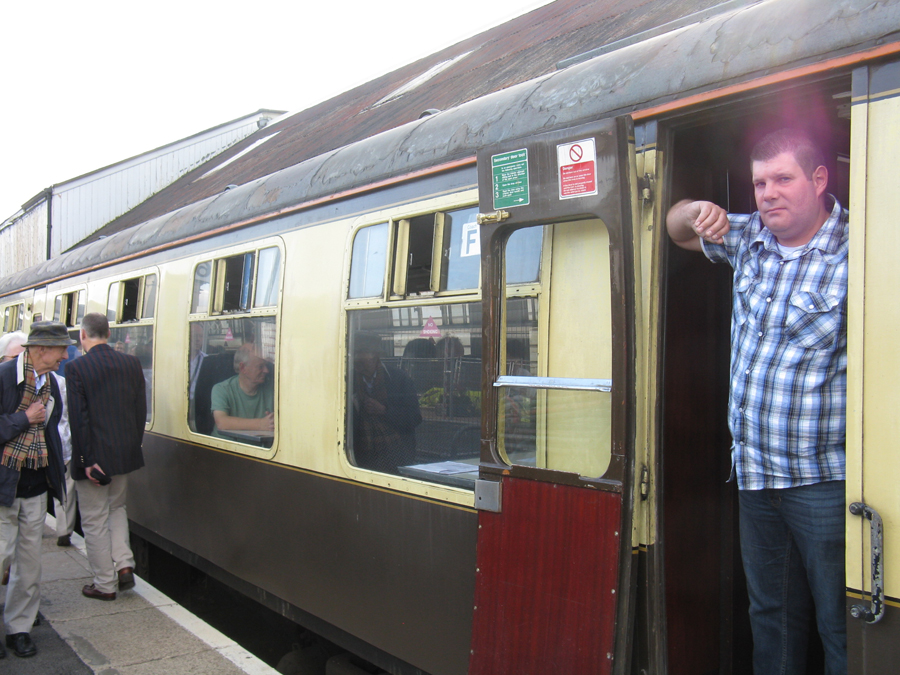 |
The engine pauses for water at Weston-super-Mare in the waning light of
late afternoon. Although it is not evident from my pictures, 60163 (like
many British steam passenger locos) has a third, inside-connected cylinder
between the frames. The three cylinders give it a distinctive exhaust
sound, especially at high speeds.
|
||
|
The train passes the old resort city of Bath, and runs through a lovely
landscape as the sun sets. Much of the return trip followed a different
route than the outbound trip, traveling on parts of the original Great
Western mainline which was built from London to Plymouth in the 1840s.
Total round trip mileage was about 380. |
 |
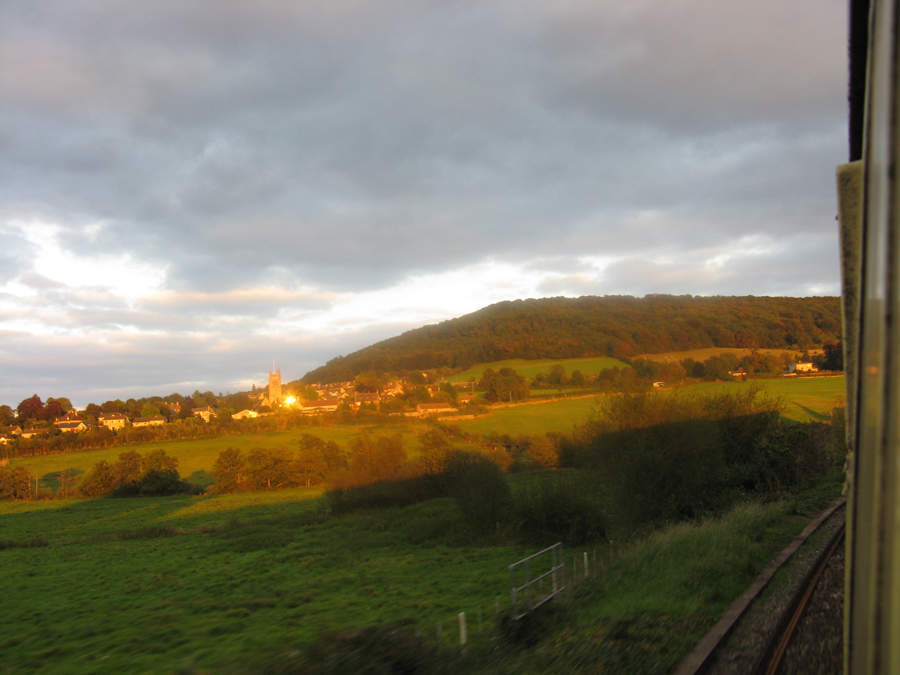 |
At about 10 PM 60163 rests at Clapham Junction, near London Waterloo,
where the return trip terminated. This was one of the very best steam
trips I ever rode, and Tornado is a magnificent locomotive. |
This page was designed and is maintained by Mike Condren.
If you have materials
that you would like to contribute, contact me at mcondren@cbu.edu
